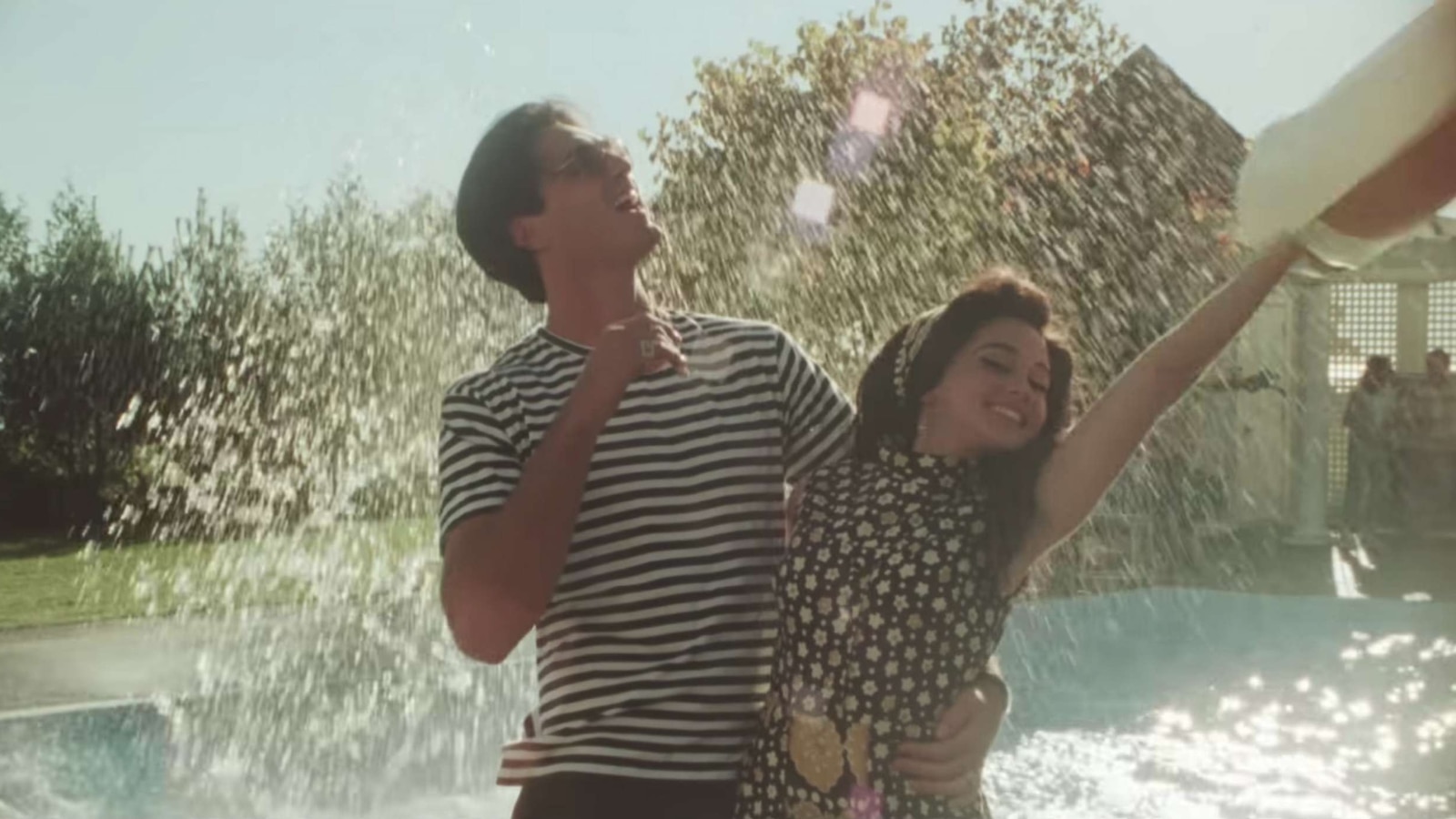Review: Cailee Spaeny delivers a star-making performance in 'Priscilla'
Coppola's alternate version is startling in its authenticity.

Priscilla Presley, wife of the King of Rock and Roll and mother to their only child Lisa-Marie, was barely an afterthought in "Elvis," the glitzy 2022 Baz Luhrmann take on the King. No more. In Sofia Coppola's "Priscilla," an indelibly intimate biopic based on Priscilla Presley's 1985 memoir "Elvis and Me," Priscilla gives Elvis a supporting role to the child-woman he took as his queen.
And suddenly, through Coppola's tough-and-tender artistry, the truth of that relationship feels quietly revelatory. Now in limited theaters in advance of its Nov. 3 wide release, Coppola's alternate version is startling in its authenticity. No one captures girlhood on film better than Coppola (see "The Virgin Suicides" and "Lost in Translation") and she's back in action here.

All praise to the sublime Cailee Spaeny, who digs deep into the life and loneliness of Priscilla Beaulieu. This army brat met Elvis (Jacob Elordi) in 1959 at 14, married him at 21 (no sex till then by his decree), and found life in his Graceland pumpkin shell different from her fantasies, much like the young queen set adrift in a French palace in Coppola's "Marie Antoinette."
Spaeny, probably best known as the murdered single mom in "Mare of Easttown," delivers a star-making performance, totally deserving of the best actress prize she won at the Venice Film Festival for taking us from the girly pleasures Priscilla felt as the object of a rock god's affection to her desperation at being caught in his trap.
Having been denied access by the Presley estate, Coppola had to make her film with her hands virtually tied behind her back. No Elvis Presley songs and no shooting on actual locations. Remarkably, Coppola makes it work through clever design and music, including a "Crimson and Clover" track from Phoenix, the French indie pop band fronted by Coppola's husband Thomas Mars.
There's also a spot-on needle drop from Frankie Avalon's "Venus," with a lyric that might be expressing Elvis' sentiments exactly: "Venus if you will / please send a little girl for me to thrill."
And a little girl is how Elvis, 10 years Priscilla's senior, treats the woman he calls "baby." They meet near a U.S. Air Force base in Germany, where both Elvis and Priscilla Presley's father are stationed. Her parents (Dagmara Dominczyk and Ari Cohen) are appalled at the age gap until Elvis disarms them with his southern courtesy.

But first impressions can deceive as a lonely Priscilla feels closed in when Elvis moves her into Graceland, chaperoned by his strict father and her husband's Memphis cronies while he goes off to make movies, publicly romancing costars such as Swedish bombshell Ann-Margaret.
Coppola shows how Elvis dictated Priscilla's wardrobe and makeup, from teased hair to spidery false eyelashes, and urged her to sample his cache of uppers and downers. It's creepily close to grooming, except sex isn't the goal, it's control. Elvis, still grieving the death of his mother, and Priscilla, alone in a fantasy world, are lost children.
The exceptional Elordi, the tree-tall Australian hunk from "Euphoria" and "The Kissing Booth" films, is dangerously good, showing how Elvis can coddle Priscilla like a spoiled child and then freeze her with a cold stare, followed by violently throwing a chair at the wall only a whisper from her face. We're miles here from the sympathetic portrait Austin Butler offered in "Elvis."
But thanks to the dynamite teamwork of Spaeny and Elordi, the bond between them feels real. In real life, Priscilla Presley, 78, had several affairs but never remarried. She's arranged to be buried in Graceland near the man she divorced in 1973 and their daughter Lisa Marie Presley, who died this past January of cardiac arrest.
Coppola ends her bittersweet beauty of a film, not with present-day Priscilla, but on the pivotal day in 1973 -- four years before Elvis' death at 42 -- when she drove out of Graceland ready to begin life for the first time on her own. It an exultant moment that gives substance and support to an emerging woman, a Coppola hallmark. Brava!







